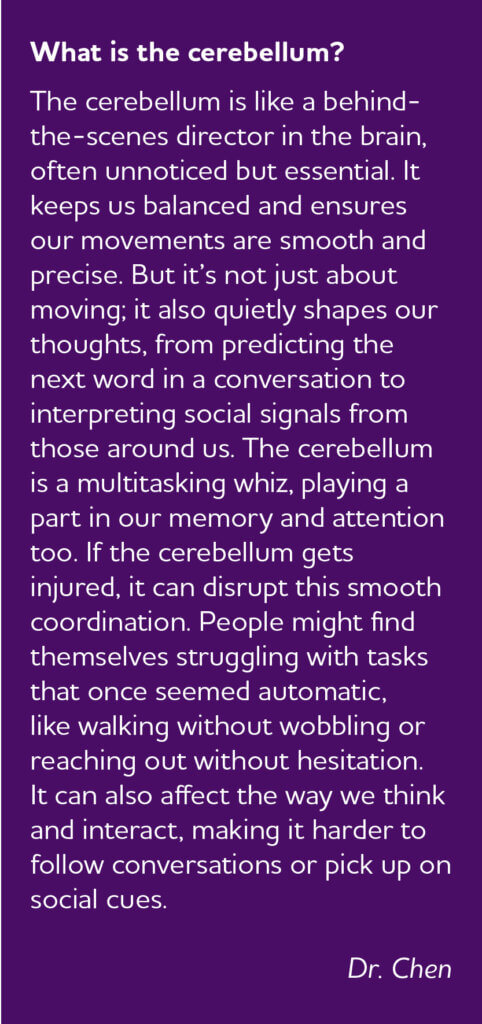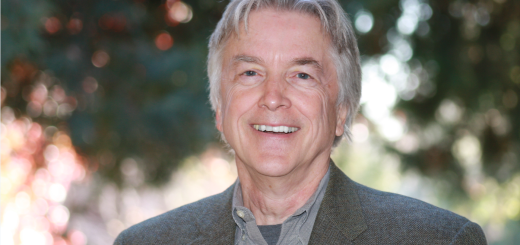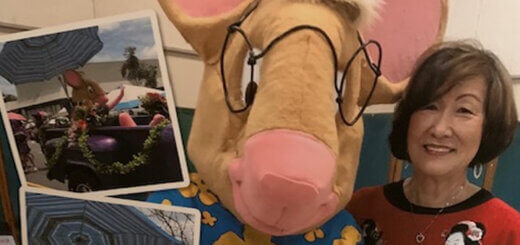Research: How the brain changes when you have dementia
Dr. Yu (Sherry) Chen, a postdoctoral fellow at University California San Francisco (UCSF), was a recipient of the 2023 Alzheimer’s Association® Clinical Scientist Fellowship to Promote Diversity. Her research focuses on how the brain works and changes when you get diseases like dementia, specifically in the cerebellum.
Last mystery in the world
Dr. Chen first became interested in the brain when she was in high school. Her biology teacher shared that the brain the last mystery of the world, and it sparked an interest in Dr. Chen. “I went to medical school to pursue how the brain works,” said Dr. Chen. “[I wanted to know] how the brain works when it is healthy and how it works with dementia.”
In 2015 Dr. Chen moved from China to Sydney to further explore the brain at the FRONTIER (Frontotemporal Dementia Research) clinic in Sydney, Australia. There she found that while researchers had been including data on the cerebellum, no one had been talking about its changes. “We found cerebellum findings in research, and we didn’t know what that meant,” said Dr. Chen. “It was only reported in the figures but never mentioned.”
Clinical Scientist Fellowship Grant
Now that Dr. Chen works for UCSF, she applied for and received a three-year, prestigious International grant from the Alzheimer’s Association. In 2023 Dr. Chen was one of only five scientists to be awarded this honor. When she found out she won, she excitedly shared it throughout the office and on social media. Dr. Chen says, “It’s a testament to the significance of the impact of the work that will be done in the future. This motivates me to dive deeper into cognition and in the brain.”
Researching the brain
Through her grant Dr. Chen will see how the brain works and changes when you get a disease like dementia. She will study both people living with the disease as well as healthy individuals. Not only will Dr. Chen and her team create a test to assess participants in the study, but they will also use brain mapping to see how different parts of the brain are affected.
Two family members with dementia
In addition to her love of learning, Dr. Chen also has a connection to the disease, both her grandfather and maternal grandmother have dementia. Watching the sacrifices her father and aunties made to care for them was hard for Dr. Chen to watch. “I remember the moment [my grandfather forgot my name, and mismatched me with my aunt,” said Dr. Chen “He spoke to me as if I were a stranger when I gave him water.”
Hope for her research
Dr. Chen hopes her work will help people living with the disease by improving the diagnosing process and provide people with more effective treatment. Dr. Chen says, “I care about how [people living with the disease] feel and how this will benefit them in the future. I want to create a world where the aging population and dementia patients can enjoy their life after they get the disease.”
Learn more about Dr. Chen’s research here. The Alzheimer’s Association is largest nonprofit funder of Alzheimer’s research. For more information on research and grants please visit alz.org/research.


















